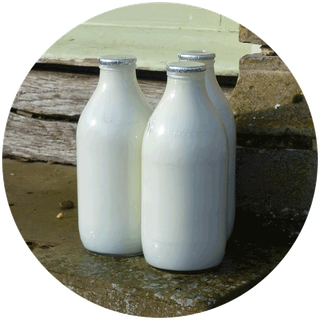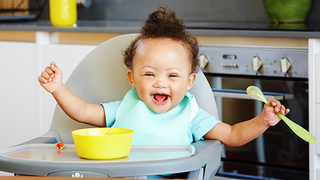- Choking and gagging
- Food allergies
- Food and drinks to avoid
- Preparing food safely
- Storing and reheating food
Introducing foods that could trigger an allergic reaction
Find out what types of foods may cause an allergic reaction and how to safely introduce them to your baby's diet, as well as how to spot the signs of a food allergy.
Introducing foods safely
When you start introducing solid foods to your baby from around 6 months, introduce the foods that can trigger allergic reactions 1 at a time and in very small amounts so that you can spot any reaction.
What foods to introduce
These foods can be introduced from around 6 months as part of your baby's diet, just like any others:
- cows' milk (in cooking or mixed with other food)
- eggs
- foods that contain gluten, including wheat, barley and rye
- nuts and peanuts (serve them crushed or ground)
- seeds (serve them crushed or ground)
- soya
- fish
- shellfish (do not serve raw or lightly cooked)
Once introduced and if tolerated, keep offering those foods as part of your baby's usual diet to minimise the risk of allergy.
Evidence has shown that delaying introducing peanuts and hens' eggs after 6 to 12 months may increase the risk of developing an allergy to them.
Diagnosed food allergies
If your baby already has a diagnosed food allergy or eczema – or if you have a family history of food allergies, eczema, asthma or hay fever – you may need to be particularly careful when introducing foods. Talk to your GP or health visitor first.
Avoid any food if you're unsure about the ingredients and you think it may contain something your child is allergic to. Make sure to read food labels carefully.

Signs of a food allergy
Signs of a food allergy can include 1 or more of the following reactions:
- diarrhoea or vomiting
- a cough
- wheezing and shortness of breath
- itchy throat and tongue
- itchy skin or rash
- swollen lips and throat
- runny or blocked nose
- sore, red and itchy eyes
In a few cases, foods can cause a severe allergic food reaction (anaphylaxis) that can be life-threatening. Call 999 and get medical help immediately.
For more information, have a look at food allergies in babies and young children on the NHS website.

Ready or not weaning quiz
Is your baby ready for solid foods? Take our quick quiz to see if they might be, and to learn about the signs and myths of weaning.